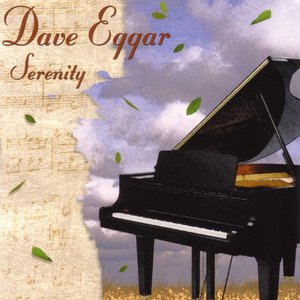Published on Jan 8, 1999
It’s one thing to create an instrumental album – especially an
album that features only one instrument – that is pretty. I’ve
listened to dozens, if not hundreds, of albums in my time that
featured some music that was beautiful.
But how do you create an instrumental album of pretty music that
isn’t boring? This is the trick – and Dave Eggar, while an
incredible pianist, appears to still be learning how to hone his
craft on his debut release
Serenity. It’s an album of some wonderful piano work – but
it occasionally seems like too much of a good thing.
One of America’s up-and-coming youngsters in the world of fine
arts, he has cut his teeth not only in the neo-classical world, but
also with – gasp! – the rock world (Alice Cooper, John Denver). So
Eggar has won the first battle: musically, he is well-rounded. He
also wins the second battle in the arena of songwriting: his
compositions are aesthetically pleasing. There is a natural rise
and ebb to his playing that you can feel on songs like “Sorrow’s
Call” and “A Western Wind”. As a listener, you actually feel like
you’re a part in the wordless story that Eggar is telling.
But
Serenity slips in the fact that many of the compositions
sound too much like each other. I’ve said it before, and I’ll say
it again: sometimes, if you’re not paying attention to the track
listing, it’s easy to lose track of what song you’re listening to.
I happen to be someone who likes to follow an album’s progress, but
as songs continued to blend into each other, I found it far too
easy to be distracted by the real world around me – for just enough
time to lose my place musically.
Of course, some fans of Eggar’s style of modern classical meets
new age might say that you’re supposed to just let yourself fall
into the music and have it carry you to wherever the moment wills.
Hey, man, whatever sails your boat – but the fact that Eggar’s
compositions all have a homogeneous quality to them still remains a
difficulty. Unfortunately, I can’t put my finger on where the
bandage needs to be applied.
And it’s not the all-piano style of
Serenity that is a problem. I’ve listened to enough albums
of piano-only music, and I’ve heard many that kept me glued to each
note. Eggar’s compositions just don’t do that for me – and I
honestly can’t figure out why.
Oh, don’t read too much into the criticisms.
Serenity is still a very gentle album that is nice
background music for a spring day (something that seems to be
light-years away right now in Chicago), but methinks Eggar needs to
gain a few road scars before he achieves oneness between his music
and his target audience.
